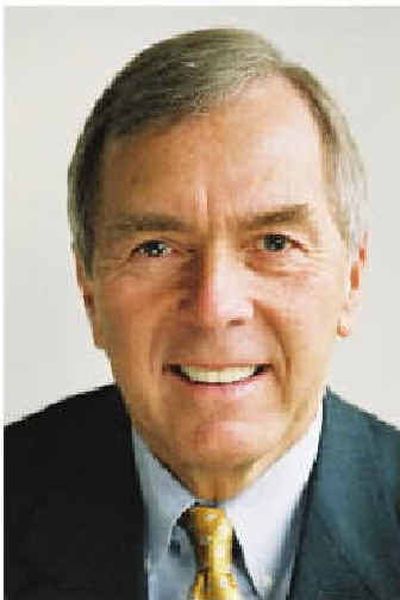Nethercutt joins firm led by ex-Cheney energy adviser

WASHINGTON – Former U.S. Rep. George Nethercutt, R-Wash., and former Deputy Interior Secretary Steven Griles are joining a lobbying firm headed by a former top White House energy adviser.
Nethercutt lost a bid for the U.S. Senate last year. Griles, who oversaw the Bush administration’s push to open more public land to energy development, announced last month he was stepping down.
The pair are joining a firm headed by Andrew Lundquist, who led Vice President Dick Cheney’s energy task force in the Bush administration’s first term.
The Lundquist Group, LLC will be renamed Lundquist, Nethercutt & Griles, LLC, and will remain based in Washington.
Nethercutt, who represented the Spokane area for five terms in the U.S. House, said in a statement that his new job would continue a longtime interest in developing partnerships among the federal government, businesses, universities and nonprofit organizations.
“In my role on the House Defense, Agriculture and Interior subcommittees, I worked on a host of national issues,” Nethercutt said. “By joining with Steve and Andrew, I am able to combine my legislative expertise with their executive branch experience to continue to work on the national and Northwest issues I care about.”
Griles, who earned a reputation as a go-to broker in Bush’s program to lease out vast oil, gas and coal reserves below federally owned land in the West, said he was excited to be joining Nethercutt and Lundquist.
“Working as a team we can cover a broad range of complex national and international issues, including agriculture, defense, energy, financial services, mining, natural resources, and telecommunications,” he said.
During nearly half his four-year tenure at Interior, Griles was investigated by the department’s inspector general. Inspector General Earl Devaney concluded Griles didn’t appear to violate ethics rules by arranging meetings between Interior officials and former clients and partners, or in the award of $1.6 million in contracts to a former client.
But Devaney described Griles’ behavior as an example of “an institutional failure” among Interior officials who potentially eroded public trust by failing to consider the perceived impropriety of their actions.
Griles continued to receive $284,000 a year, in addition to his Interior salary, as part of a four-year severance package from his former lobbying and consulting firm.
In an interview last month, Griles called the charges against him “a political gambit” made by people opposed to the Bush administration.
Lundquist also has been a controversial figure. In January 2001, Cheney named the Energy Department employee to direct a task force that wrote a national energy policy.
Environmental groups criticized the task force for holding secret meetings with the energy industry, but Lundquist has said he met with hundreds of people from energy companies to conservation groups to consumer groups.
In a lawsuit seeking information about the task force meetings, the Natural Resources Defense Council subpoenaed Lundquist, saying he “holds a critical missing piece of the puzzle about how the Bush energy plan was developed.”
Lundquist, a native of Fairbanks, Alaska, was a top aide to Sens. Frank Murkowski and Ted Stevens, both R-Alaska, before joining the Bush administration. He has denied wrongdoing.
“I can understand why people would like to know,” he told the Fairbanks Daily News-Miner in 2002. “There’s been a lot of discussion about how it was run and, to be honest, it was a very open process.”
Cheney’s task force, which has disbanded, called for increasing the nation’s supply of energy through expanded oil and gas drilling on public land and rejuvenating nuclear power.